In Mozambique, death is unfortunately a common occurrence. My roommate’s host dad died of an unknown illness shortly after we moved to our town. A few weeks later, a neighborhood child who was eight years old died of diarrhea. I have known people to die in car accidents as well as due to stomach aches, malaria, parasites, and many other illnesses. Children are especially vulnerable to these illnesses.
It is difficult to describe, but, after a time these mortalities become numbing. A person can say, “my dad died” and seem – to my foreign eyes – to be indifferent about it. In my experience, I have learned that Mozambicans handle their grief much differently than Americans do. For example, if any relative (or relative of a relative or friend of a relative) dies, everyone will go to the funeral. The only exception I have heard of to the funeral attendance “rule” is if a person lives more than a two-day drive away from the deceased’s residence. Even if a person doesn’t have money to travel to participate in the service, the community will put funds together to make sure that they can go. Due to the lack of ways to preserve the body, the funeral usually takes place within three days of the death. During this time, the family gathers together, cooks together, sleeps together, and shares what they can together. The day of the funeral is for crying. Afterwards, it is seen as a weakness to cry. Generally, after the funeral, I have noticed that the deceased is not mentioned very often. Friends of the grieving will ask how the funeral went, though not about how the family is handling the death. It seems that people tend to grieve through not talking much about it. Or, if they do, it is very matter-of-fact. For example, they will say, “yes, …., was sick” or “…. was in a fatal car accident.” It is rare for the grieving to speak of the character of the person.
In mid-May my aunt started to get sick. My family very quickly found out that she had an aggressive form of cancer that spread astonishingly fast. It was miserable being so far away from home during these weeks. All I wanted to do was to help take care of Auntie Lynn. With every update, it was increasingly difficult to keep my grief at bay. At first, when the prognosis seemed hopeful, I was hesitant to talk about the situation with my Mozambican friends. With so many other illnesses going on here, why should I burden them with one more? However, once my grief started to overflow into my everyday life, people started to notice and ask what was wrong. It was surprisingly comforting to listen to their views. While I didn’t want to hear about how illnesses are the way of life and that we need to learn how to accept them, I knew that every person who spoke to me had lost someone to some form of illness. They were speaking from their hearts and experiences. My friends have experienced much more loss than I have and it was humbling to remember that there is no chemotherapy or radiation treatment in my province. Almost every person in this region who develops cancer will die from it due to the lack of care options.
My friends grieved with me when they learned that I couldn’t participate in my aunt’s funeral and memorial services. To support me, they sent me many encouraging messages and gave me many hugs. The day after my aunt passed, I emotionally couldn’t get through one of my classes and literally had to run out of the classroom to avoid bursting into tears in front of them. Afterwards, my students made sure that I knew that they were now my family and a few even offered to cook for me. I felt loved.
The interesting part of this whole experience was needing to explain the time gap between my aunt’s passing and the memorial service as well as the reason why I was still expressing my pain, even weeks later. As I mentioned, it is almost unheard of for a funeral to be more than a week after the death and my aunt’s memorial service was two weeks later. I needed to explain what cremation was and how it is more difficult for people to drop everything to travel for an unexpected funeral. I needed to explain how amazing of a person my aunt was and why her death was affecting me as much as it was/is. I needed to explain how close my family is and how it was emotionally straining not to be able to take part in this family time. I needed to explain how, even two weeks before my aunt’s death, we were still expecting to have much more time with her. It was strange to share stories about my life with her, because my friends seemed uncomfortable talking about her life.
Grief affects everyone. However, I have learned that the signs of grieving are cultural. What is grieving to me is completely different than how my friends process their pain. As terrible as these past months have been emotionally, it has been a unique learning experience. I was close, so close, to choosing to end my time in Mozambique early to go home and be with my family. Thankfully, I chose to stay. I know my aunt would have wanted me to stay and make the most of my short time left in this beautiful country. Hopefully I will be able to continue my learning.




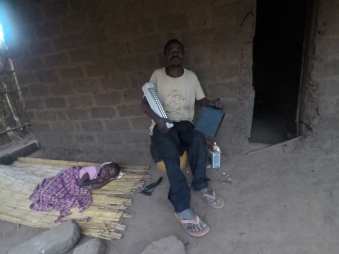 One thing that never ceases to amaze me is how many Mozambicans have a knack for repairing everyday objects. For example, Agostino is a jack-of-all trades. He is a shoe repairman, technology wiz, and cellphone technician. It is rare to find him not working on a project. Agostino works from his home and charges modest fees for his work: about 50 cents for a shoe repair and about $1.50 for technology repairs, depending on the level of work needed. He truly is a miracle worker with a screw driver and has consistent daily business. Agostino is known for being reliable and honest with this work and is always there to greet people with a big “hello there” and an even bigger smile. He is a self-made man who could easily have been an engineer in a different setting.
One thing that never ceases to amaze me is how many Mozambicans have a knack for repairing everyday objects. For example, Agostino is a jack-of-all trades. He is a shoe repairman, technology wiz, and cellphone technician. It is rare to find him not working on a project. Agostino works from his home and charges modest fees for his work: about 50 cents for a shoe repair and about $1.50 for technology repairs, depending on the level of work needed. He truly is a miracle worker with a screw driver and has consistent daily business. Agostino is known for being reliable and honest with this work and is always there to greet people with a big “hello there” and an even bigger smile. He is a self-made man who could easily have been an engineer in a different setting.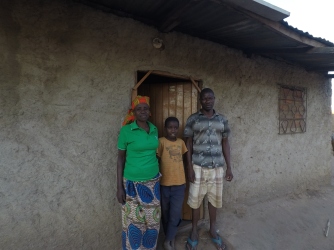
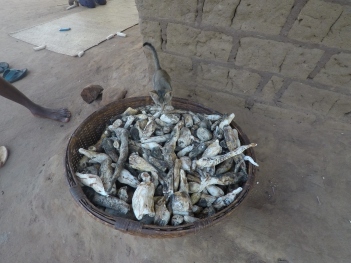 Leticia is particularly proud of this project – as she should be – because it means that the quality of her produce will only increase, meaning better profits when it comes time to sell. With better profits, she will be able to purchase more lucrative seeds to plant, such as sesame seeds, which will set her apart from the other farmers in town. As she continues to better her farm, she will one day be able to consider hiring farming help. These extra hands will give more flexibility for her younger kids to continue with their studies because they wouldn’t need to help in the fields every morning. For every child that manages to finish their schooling and gain a job, it will be an ever bigger economic boost to their family.
Leticia is particularly proud of this project – as she should be – because it means that the quality of her produce will only increase, meaning better profits when it comes time to sell. With better profits, she will be able to purchase more lucrative seeds to plant, such as sesame seeds, which will set her apart from the other farmers in town. As she continues to better her farm, she will one day be able to consider hiring farming help. These extra hands will give more flexibility for her younger kids to continue with their studies because they wouldn’t need to help in the fields every morning. For every child that manages to finish their schooling and gain a job, it will be an ever bigger economic boost to their family.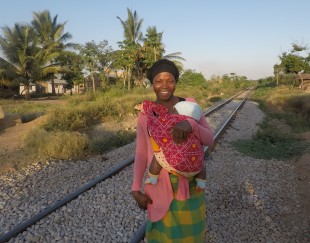
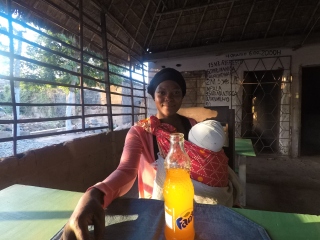 Despite the seemingly endless stream of challenges that she faces, Flora always looks for the bright side of the situation. For example, even though she has had tougher relationships with her previous two husbands, Flora loves her kids and has said that they are the best thing that came out of those marriages. She would still like to get married again so that both she and her husband can work to provide for a more secure future. When I asked, she told me, giggling all the while, that her ideal man is someone who loves her, is educated, tall, strong, and someone who can love her family.
Despite the seemingly endless stream of challenges that she faces, Flora always looks for the bright side of the situation. For example, even though she has had tougher relationships with her previous two husbands, Flora loves her kids and has said that they are the best thing that came out of those marriages. She would still like to get married again so that both she and her husband can work to provide for a more secure future. When I asked, she told me, giggling all the while, that her ideal man is someone who loves her, is educated, tall, strong, and someone who can love her family.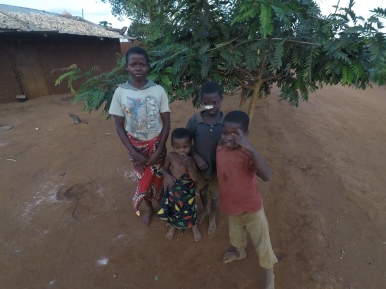

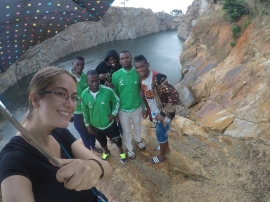 The strangest part of my World Cup experience occurred during my students’ week break. That Monday of the break, I was watching the game in the cafeteria like normal and, without notice, an entire soccer team piles into the room watch the game as well. I quickly found out that they were a team from Lichinga (the capital of one of the northern provinces) and that they came to play a game with the team on Ilha de Moꞔambique. They decided to train at our school for the week leading up to the match. It was hilarious having them here. They were big guys with even bigger egos and their presence could be felt throughout the entire campus. Everywhere they went, they were completely at ease as if they were at home. My favorite part was going on a walk with a few of the players to show them our town’s local quarry. It is a beautiful spot and visitors of our town shouldn’t leave without making a stop there. The guys and I played Uno, listened to some music on my speakers, and had a good time while there. They thought that I was crazy to be doing what I’m doing and I told them I thought that they were crazy to be doing what they were doing. We got a good laugh out of that. By the time the soccer team left the school for their match, I was invited to ride with them in the team bus to watch their game. I decided to turn them down due to the craziness of the situation… I’d have been the only woman in a bus full of extremely muscular, masculine, and confident men. With that being said, if I can be transparent, I was tempted by the offer…
The strangest part of my World Cup experience occurred during my students’ week break. That Monday of the break, I was watching the game in the cafeteria like normal and, without notice, an entire soccer team piles into the room watch the game as well. I quickly found out that they were a team from Lichinga (the capital of one of the northern provinces) and that they came to play a game with the team on Ilha de Moꞔambique. They decided to train at our school for the week leading up to the match. It was hilarious having them here. They were big guys with even bigger egos and their presence could be felt throughout the entire campus. Everywhere they went, they were completely at ease as if they were at home. My favorite part was going on a walk with a few of the players to show them our town’s local quarry. It is a beautiful spot and visitors of our town shouldn’t leave without making a stop there. The guys and I played Uno, listened to some music on my speakers, and had a good time while there. They thought that I was crazy to be doing what I’m doing and I told them I thought that they were crazy to be doing what they were doing. We got a good laugh out of that. By the time the soccer team left the school for their match, I was invited to ride with them in the team bus to watch their game. I decided to turn them down due to the craziness of the situation… I’d have been the only woman in a bus full of extremely muscular, masculine, and confident men. With that being said, if I can be transparent, I was tempted by the offer… While my initial World Cup team favorites have slowly and painfully become eliminated, I will still go into the city this Sunday to support Croatia in the final game. I have made a few bets on this game and I don’t want Croatia to lose when there are pizzas on the line. I am glad that I have found the enjoyment of the tournament, which has allowed me to become closer to those around me. It has been the best way to pass my evenings. I’m a little sad that the World Cup is coming to an end, though I feel fortunate to have lived through the games in Mozambique. Few things are sweeter than watching people jump out of their chairs, run around a bit, and yell their excitement when their team scores a goal. That level of passion for soccer is hard to find in the States.
While my initial World Cup team favorites have slowly and painfully become eliminated, I will still go into the city this Sunday to support Croatia in the final game. I have made a few bets on this game and I don’t want Croatia to lose when there are pizzas on the line. I am glad that I have found the enjoyment of the tournament, which has allowed me to become closer to those around me. It has been the best way to pass my evenings. I’m a little sad that the World Cup is coming to an end, though I feel fortunate to have lived through the games in Mozambique. Few things are sweeter than watching people jump out of their chairs, run around a bit, and yell their excitement when their team scores a goal. That level of passion for soccer is hard to find in the States.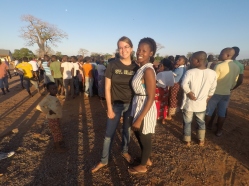 At first nothing seemed to change. I still gave my normal classes. I still went on my afternoon walks around town. I still talked with the same people and played with the same kids. However, I began to realize that my female friends started opening up to me more. One thing I need to mention before going on, is how many female PC Volunteers observe the difficulty of making female Mozambican friends. Not having kids or a husband/boyfriend of one’s own is perceived to be a huge barrier against being truly accepted as a part of the women’s group. To grossly over-generalize, there isn’t much to talk about (on the surface-level) with women when one does not have kids or a husband of their own. Throughout this year, I have slowly gotten to know some of the women of my town, but it has only been through basic conversations about the home, family, fields, and husband.
At first nothing seemed to change. I still gave my normal classes. I still went on my afternoon walks around town. I still talked with the same people and played with the same kids. However, I began to realize that my female friends started opening up to me more. One thing I need to mention before going on, is how many female PC Volunteers observe the difficulty of making female Mozambican friends. Not having kids or a husband/boyfriend of one’s own is perceived to be a huge barrier against being truly accepted as a part of the women’s group. To grossly over-generalize, there isn’t much to talk about (on the surface-level) with women when one does not have kids or a husband of their own. Throughout this year, I have slowly gotten to know some of the women of my town, but it has only been through basic conversations about the home, family, fields, and husband.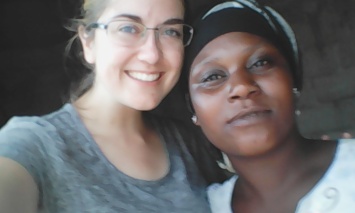 After opening up about what has been going on with me, these conversations have begun to shift. Now, I find that I am spending the vast majority of my afternoon “walks” sitting with my female friends talking about whatever comes to mind: American culture, dating in Mozambique, opinions on staying at home versus continuing studying, premature marriages, good/bad husbands, food, daily tasks, learning languages, difficulties at home, music, etc. I have also been asked to sit in the yards of more women than normal. Granted, this did not happen the very next day after I opened up. It is still a process trickling in after a few weeks of admitting that I’m not completely fine. In comparison to the entire past year, however, this level of openness came like a flash flood.
After opening up about what has been going on with me, these conversations have begun to shift. Now, I find that I am spending the vast majority of my afternoon “walks” sitting with my female friends talking about whatever comes to mind: American culture, dating in Mozambique, opinions on staying at home versus continuing studying, premature marriages, good/bad husbands, food, daily tasks, learning languages, difficulties at home, music, etc. I have also been asked to sit in the yards of more women than normal. Granted, this did not happen the very next day after I opened up. It is still a process trickling in after a few weeks of admitting that I’m not completely fine. In comparison to the entire past year, however, this level of openness came like a flash flood.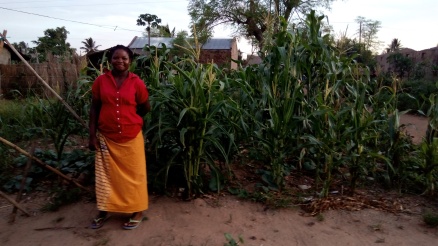
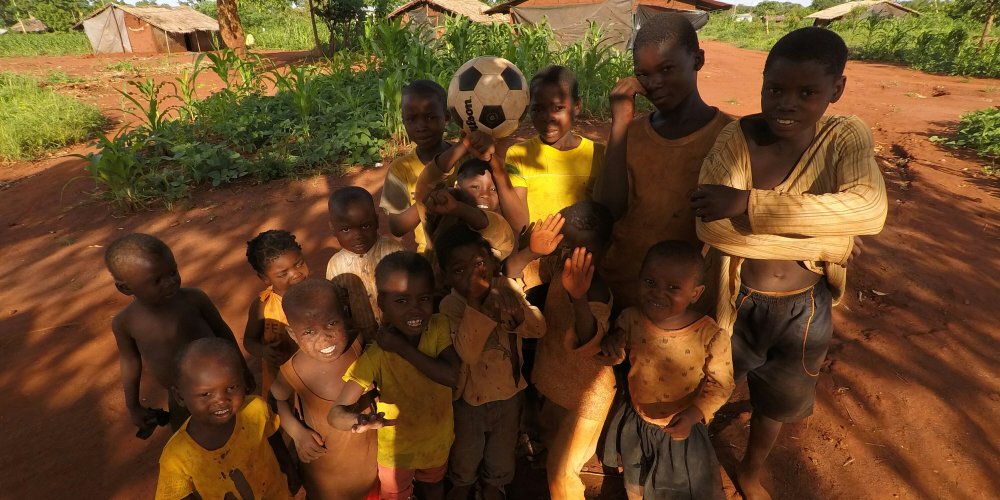
 Now, as a teacher, I can definitively say that I can’t wait for classes to get going again. The seemingly endless days have lost their glamour; I find it ironic how much my perspective has changed. I am trying my best to stay busy while I wait to receive my schedule, through hanging out with my host family, playing with the kiddos, and exercising. As fun as this is, and how nice it is to be with my community members, I am still anxious to get going on the school year.
Now, as a teacher, I can definitively say that I can’t wait for classes to get going again. The seemingly endless days have lost their glamour; I find it ironic how much my perspective has changed. I am trying my best to stay busy while I wait to receive my schedule, through hanging out with my host family, playing with the kiddos, and exercising. As fun as this is, and how nice it is to be with my community members, I am still anxious to get going on the school year.
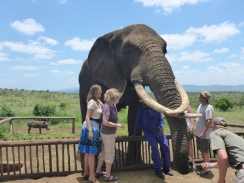 The safari was a blast. We got to see elephants, black and white rhinos, a cheetah, baboons, monkeys, hippos, impalahs, zebrahs, giraffes, and more. We also had the opportunity to participate in an elephant interaction where we were able to feed three elephants, touch one of their tongues, and feel up its tusk. It was a very fun experience because the elephants know what time to show up to this encounter every day and then leave shortly after. It’s the time of day that they get to have special treats (for us too!).
The safari was a blast. We got to see elephants, black and white rhinos, a cheetah, baboons, monkeys, hippos, impalahs, zebrahs, giraffes, and more. We also had the opportunity to participate in an elephant interaction where we were able to feed three elephants, touch one of their tongues, and feel up its tusk. It was a very fun experience because the elephants know what time to show up to this encounter every day and then leave shortly after. It’s the time of day that they get to have special treats (for us too!).
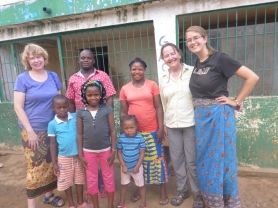 After our time in South Africa, we made our way up to northern Mozambique to visit my home and community. We had an adventure straight from the get-go with two blown tires… One thing about Mozambique is how we must be flexible in all aspects. We had a great time walking around my community to meet my host family and other friends around town. Everyone was so excited to meet my family (and I loved showing them off to my community). Due to the cyclone that passed through the northern coast, we stayed at home longer than I had originally intended enjoying playing Uno in the candlelight.
After our time in South Africa, we made our way up to northern Mozambique to visit my home and community. We had an adventure straight from the get-go with two blown tires… One thing about Mozambique is how we must be flexible in all aspects. We had a great time walking around my community to meet my host family and other friends around town. Everyone was so excited to meet my family (and I loved showing them off to my community). Due to the cyclone that passed through the northern coast, we stayed at home longer than I had originally intended enjoying playing Uno in the candlelight.